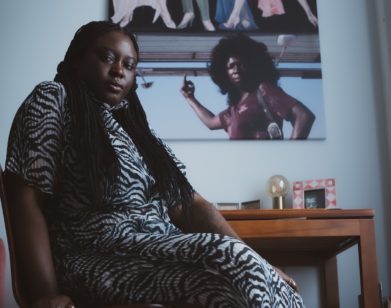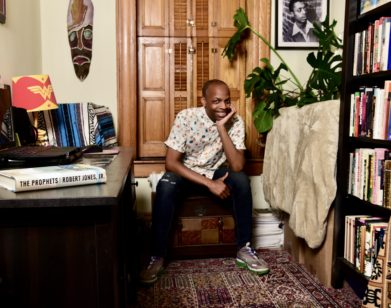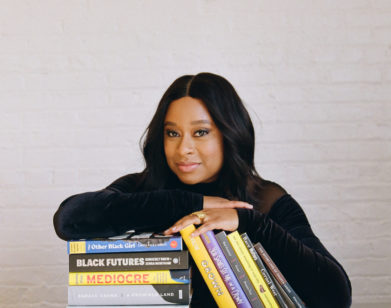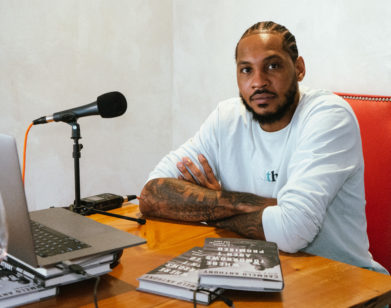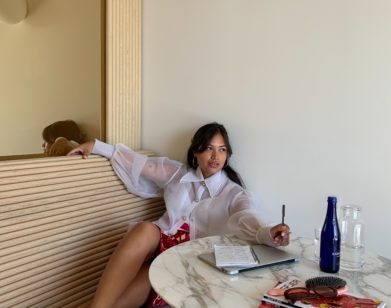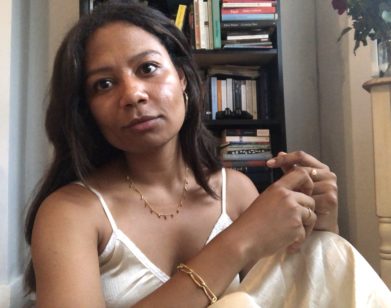rough draft
Why Brandon Taylor Will Never Write a Memoir
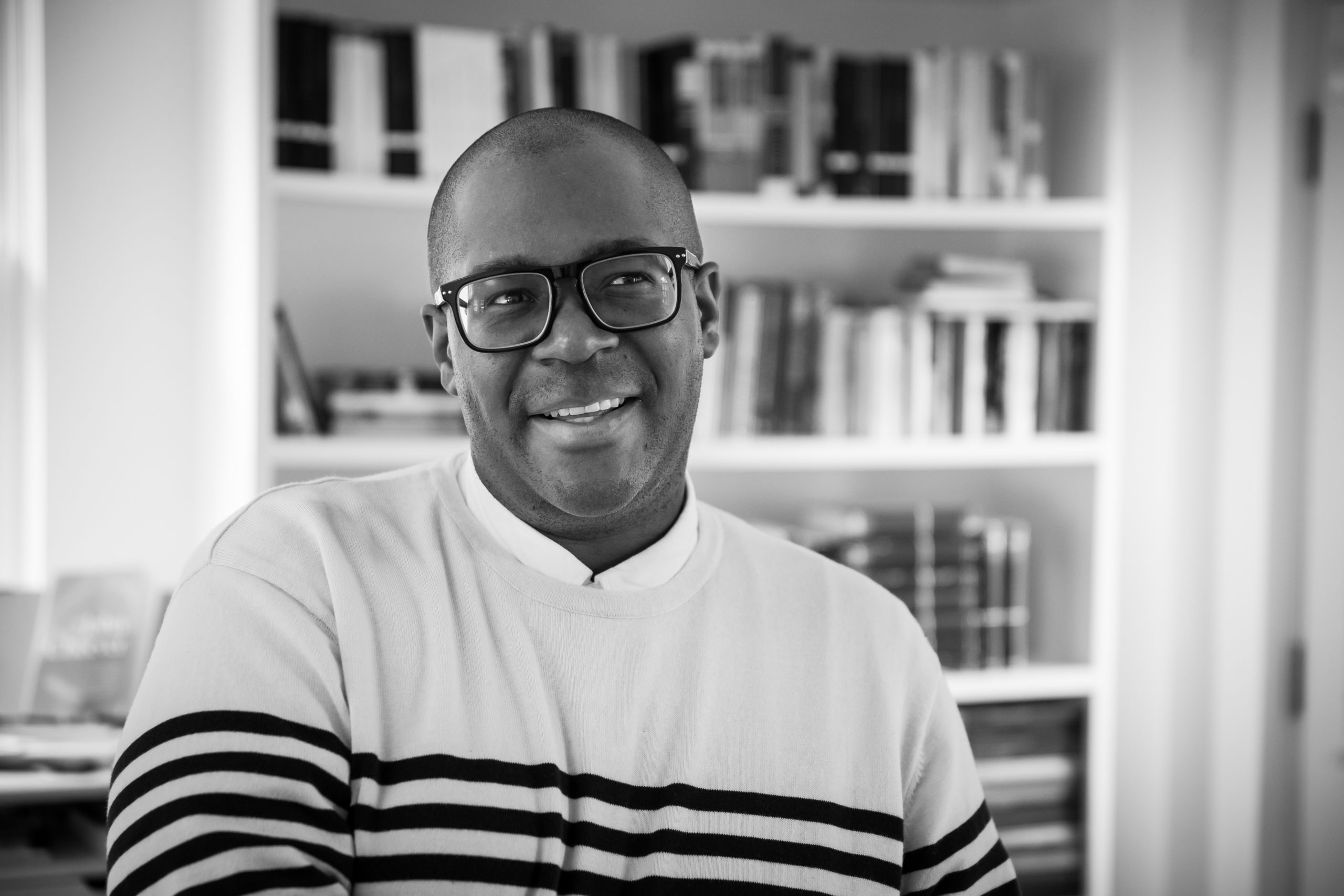
Photo by Bill Adams.
This is Rough Draft, in which our favorite writers get to the bottom of their own craft. From preferred writing drinks to whether or not you really need to carry a notebook, we find out all the ways they beat writer’s block and do the work. This week, we speak to the author Brandon Taylor. A year after his debut novel Real Life, Taylor is back with Filthy Animals: a collection of short stories out today from Riverhead Books. The book follows a group of young Midwesterners as they negotiate their daily lives, engaging the mundane and the sensational with equal reverence. Below, discover the elements that helped him get it done.
———
JULIANA UKIOMOGBE: Describe your ideal writing atmosphere.
BRANDON TAYLOR: Ample background noise and lots of elbow room are the only two things I require. Lots of natural light is a plus.
UKIOMOGBE: Do you eat or drink while you write?
TAYLOR: When I write, I am scarcely aware that I even have a human body. I’m not really big on creature comforts.
UKIOMOGBE: Do you keep a notebook and/or journal?
TAYLOR: Way too many to be productive.
UKIOMOGBE: What’s your favorite quote?
TAYLOR: Lately, I’m obsessed with the bit from Pride and Prejudice that goes, “What are men to rocks and mountains?”
UKIOMOGBE: Whose writing do you always return to?
TAYLOR: Mavis Gallant, Alice Munro, Jane Austen, and Danielle Evans.
UKIOMOGBE: What books did you read as a kid/teen?
TAYLOR: As a kid and teen, I read mostly romance novels. Especially Kathleen Woodiwiss and Johanna Lindsey and Linda Lael Miller, and I still love them as much today as I did then.
UKIOMOGBE: Do you read while you’re in the process of writing? Which writers inform your current work the most?
TAYLOR: The novels I read when I’m writing are almost always the same—mostly, I read Sense and Sensibility and Persuasion and Fates and Furies. In terms of nonfiction, I read big histories and biographies. I’m a sucker for Nancy Goldstone and Alison Weir. In terms of what I’m working on right now, I’d say my next book is mostly inspired by Nicole Krauss, Rachel Cusk, and the recent biographies of Helen Frankenthaler and Lucien Freud.
UKIOMOGBE: How many drafts of one piece do you typically write?
TAYLOR: I would say that I tend to write something like three or so complete drafts. But lots of tweaked versions between drafts.
UKIOMOGBE: What would the title of your memoir be?
TAYLOR: I would rather never write again than write a memoir, lol. I’m not even going to joke about it lest I tempt fate and end up having to write one. Yikes. I would literally rather die.
UKIOMOGBE: Who’s your favorite screenwriter? Can a movie ever be as good as the book?
TAYLOR: My favorite screenwriter? Probably Phyllis Nagy or Kelly Reichardt. Or Kenneth Lonergan. I love their patient storytelling. The rhythm of their dialogue, the density of their scenes. Just stellar. I think movies and books are different, and that one’s experience of them is subjective! They do different things, and I’m not sure hierarchical comparison is an interesting pretext under which to judge art. But I guess, yeah, sure, sometimes you can enjoy a movie as much as you did a book, but I do think we come into adaptations with so much baggage and it’s silly to expect a movie to change your life in the same way the first encounter with the book did. I mean, you’re literally not the same person!
UKIOMOGBE: Do you consider writing to be a spiritual practice?
TAYLOR: I’m not really woo woo about it. I tend to zone out when people start talking about writing as some kind of spiritual calling. I’m grateful I get to do it. But I don’t think about it too much.
UKIOMOGBE: Which writers would you choose to have dinner with, living or dead?
TAYLOR: Mavis Gallant is the writer I want most to have dinner with. And the critic Northrop Frye. That would be a fun, very Canadian dinner.
UKIOMOGBE: What advice do you have for people who want to be better writers?
TAYLOR: Learn how to write scenes and how to write with emotional honesty. The rest will follow.
UKIOMOGBE: What are some unconventional techniques you stand by?
TAYLOR: I am literally the most conventional person in the world. So I’d say, like, maybe try following some conventions for once.
UKIOMOGBE: Can great writing save the world?
TAYLOR: In an abstract sense, sure.

